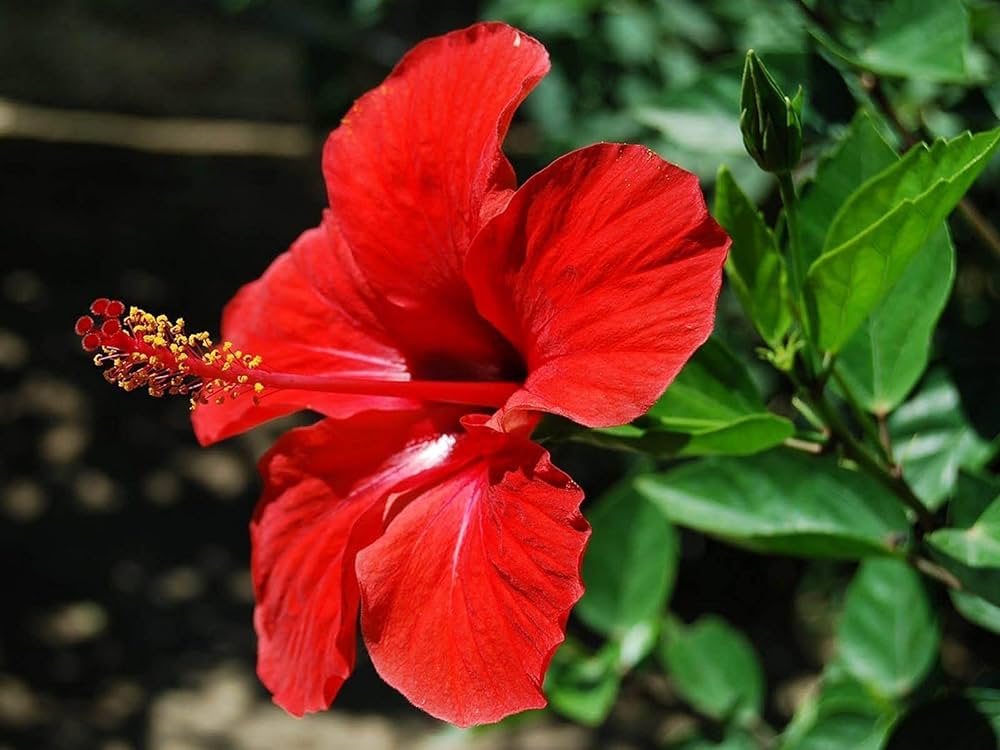Hibiscus is a stunning plant, with its vibrant and eye-catching blooms, and lush green foliage. It comes in many colors and also has significance for cultural as well as medical purposes. This plant holds a very special place in Ayurveda, an ancient Indian system of medicine that recognizes the unique properties and benefits of various plants and herbs. This flower is widely used in Ayurvedic treatments due to its powerful anti-inflammatory and antioxidant properties, which help to promote overall health and well-being. Let’s delve into the rich heritage and holistic benefits of hibiscus in Ayurvedic practices.
Introduction
In Ayurveda, hibiscus is known by various names such as japa kusum in Sanskrit, Gudhal in Hindi, and Shoe flower in English. It is highly valued for its therapeutic properties and has been used for centuries to promote overall well-being. Its flowers, leaves, and even roots are utilized in various Ayurvedic formulations.
Historical Significance in Ayurveda
The mention of japa kusum can be found in classical Ayurvedic texts like Charaka Samhita and Sushruta Samhita, dating back thousands of years. It has been traditionally used to balance doshas and treat ailments.
Nutritional Profile
Hibiscus is packed with essential nutrients such as vitamin C, antioxidants, flavonoids, and minerals like calcium and iron. The therapeutic properties are present in these nutrients.
Ayurvedic Properties
Cooling Effect (Sheet Virya)
Hibiscus exhibits a cooling effect on the body, making it particularly beneficial during hot summer months. It helps pacify Pitta dosha, thus promoting balance and harmony.
Pungent Taste (Katu Rasa)
The pungent taste of the flowers stimulates digestion and improves appetite. It aids in the assimilation of nutrients, thereby supporting overall digestive health.
Lightness (Laghu)
Hibiscus is light to digest and doesn’t burden the digestive system. It is gentle on the stomach and promotes easy absorption of nutrients.
Health Benefits in Ayurveda
Promotes Hair Health
Hibiscus is a popular ingredient in Ayurvedic hair care formulations. It nourishes the scalp, strengthens hair follicles, and prevents premature greying and hair fall.
Supports Digestive Health
The digestive properties of hibiscus aid in alleviating digestive issues such as bloating, indigestion, and constipation. It promotes healthy bowel movements and regulates digestive fire (Agni).
Enhances Skin Radiance
Regular consumption of hibiscus promotes glowing skin by detoxifying the body and flushing out toxins. Topical application of hibiscus paste helps in reducing acne, scars, and blemishes.
Boosts Immunity
The shoe flower is rich in vitamin C and antioxidants, which help strengthen the immune system. It protects the body against infections and enhances overall vitality and resilience.
How to Use in Ayurvedic Practices
Hibiscus Tea
Brew 1 hibiscus flower or 1 tsp powder in hot water for a daily refreshing tea with multiple health benefits.
Hibiscus Hair Mask
To prepare a hair mask, boil 2-3 hibiscus leaves and flowers with coconut oil or any other oil. Allow the mixture to cool and then strain it. Apply the mask to your scalp and hair, leave it for an hour, and then rinse it off with normal water. This mask also acts as a conditioner for your hair.
Hibiscus Face Pack
Mix hibiscus powder with yogurt or rose water to create a rejuvenating face pack. Apply it evenly on the face, let it dry, and then wash it off with lukewarm water for glowing skin.
Precautions and Side Effects
It is crucial to note that excessive intake of shoe flower may cause stomach upset in some individuals, despite its overall safety for consumption. Therefore, it is highly recommended that pregnant and lactating women consult a healthcare professional before using any supplements..
Conclusion
Incorporating hibiscus into your daily routine can be a holistic approach to health and wellness. Its Ayurvedic properties offer a natural solution to various health concerns, from hair and skin care to digestive issues and immunity enhancement.
FAQs
- Can hibiscus be consumed by pregnant women?
- Pregnant women should consult their healthcare provider before consuming hibiscus, especially in medicinal forms.
- Is hibiscus suitable for all hair types?
- Yes, it is beneficial for all hair types. It helps to nourish the scalp and strengthen hair follicles.
- Can hibiscus tea be consumed hot or cold?
- Hibiscus tea can be enjoyed both hot and cold. It’s a versatile beverage with refreshing properties.
- Are there any known drug interactions with hibiscus?
- Hibiscus may interact with certain medications, particularly those for hypertension and diabetes. Consult a healthcare professional if you’re on medication.
- Can hibiscus face packs be used daily?
- It’s recommended to use the face packs 2-3 times a week for optimal results. Daily usage may cause skin irritation in some individuals.
Unlock the holistic benefits of hibiscus in Ayurveda and embark on a journey towards natural health and vitality.
